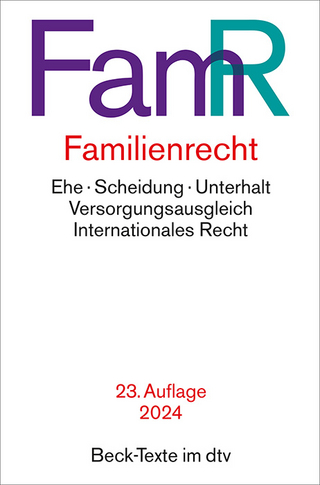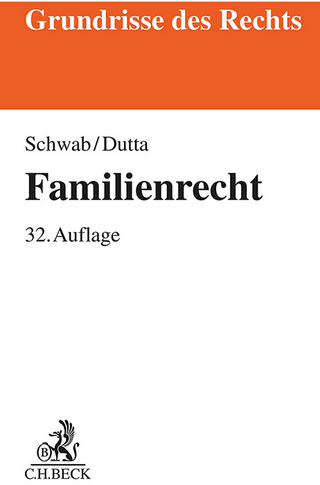
The Impact of the Convention on the Elimination of All Forms of Discrimination against Women on the Domestic Legislation in Egypt
Martinus Nijhoff (Verlag)
978-90-04-34683-3 (ISBN)
By virtue of ratifying the Women’s Convention, Egypt is internationally obliged to eliminate gender discrimination in its domestic legislation. Yet, women in Egypt face various forms of discrimination. This may legally be justified through Sharia-based reservations, which many Muslim-majority countries enter to human rights treaties to evade an obligation of implementation where Human Rights run counter to Sharia. This book examines the compatibility of Sharia-based reservations with international law and identifies discrepancies between Sharia and domestic law in order to determine rights Egyptian women are entitled to according to Sharia, and yet denied under Egyptian law. Account is moreover given to Egypt’s implementation efforts in the non-reserved areas of law. To this end, Egypt’s 2014 Constitution and four areas of statutory law are examined as case studies, namely, female genital mutilation; human trafficking; nationality; and labor law.
Nora Salem, Ph.D. (2016), University of Jena, is Assistant Professor of Public International Law, Human Rights Law, and Egyptian Law at the American University in Cairo and former Research Fellow of Fordham Law School. She worked in various capacities at the United Nations Secretariat in New York (2013-2016).
Acknowledgements V
List of Arabic Terms v
List of Abbreviations
Introduction
Objective
Roadmap
1 Introduction to the Women’s Convention
1.1 States Parties’ Obligations under the Women’s Convention
1.2 Reservations to the Women’s Convention
1.3 Excerpt: Shari’a Law
1.4 Excerpt: Egypt’s Legal and Judicial System
1.5 The Women’s Convention’s Monitoring Body
1.6 Additional un Entities Concerned with Gender Equality
2 Egypt’s Shari’a-based Reservations to the Women’s Convention
2.1 Permissibility of Egypt’s Reservations
2.1.1Women’s Convention’s Object and Purpose
2.1.2Articles 2, 16 cedaw Reflect Women’s Convention’s Object and Purpose
2.1.3Compatibility of Egypt’s Reservations with the Women’s Convention’s Object and Purpose
2.2 Legal Effect of Invalid Reservations
2.2.1Treaty Law
2.2.2Customary International Law
2.3 The Way Forward: Sharia-based Reservations: A Culturally Justified Restriction?
3 Revision of Egypt’s Implementation Efforts Regarding the Reserved Articles 2, 16 cedaw
3.1 Article 2 (g) cedaw: Domestic Violence
3.1.1Dogmatic Considerations Regarding the Legal Context of Domestic Violence
3.1.2Domestic Violence in Criminal Shari’a Law
3.1.3Domestic Violence in Egyptian Penal Law
3.1.4Discrepancies between Shari’a and Egyptian Law Regarding Domestic Violence
3.2 Article 16 (1) (c) cedaw: Divorce Law
3.2.1Right to Divorce in Shari’a Law
3.2.2Right to Divorce in Egyptian Domestic Law
3.2.3Discrepancies between Shari’a and Egyptian Domestic Divorce Law
3.3 The Way Forward: Withdrawal of Reservation in Near Future?
4 The Women’s Convention’s Impact on Egyptian Legislation
4.1 Egypt’s Constitution
4.1.1Scope of States Parties Obligation under cedaw
4.1.2Egypt’s Compliance
4.1.3Summary
4.2 Egypt’s Statutory Laws
4.2.1Combatting Female Genital Mutilation in Light of Article 12, 2 and 5 cedaw
4.2.2Combatting “summer marriages” as a Form of Trafficking in Women in Light of Article 6 cedaw
4.2.3Egypt’s Legislative Efforts on Combatting Gender-discriminatory Nationality Laws in Light of Article 9 cedaw
4.2.4Egypt’s Legislative Efforts on Combatting Gender Discrimination in Employment in Light of Article 11 cedaw
4.2.5Summary
4.3 The Way Forward: How to Improve Egypt’s Implementation Efforts?
Conclusion
Effectiveness of the Women’s Convention
International Impact of the Women’s Convention
Domestic Impact of the Women’s Convention
Obstacles to the Women’s Convention Effective Implementation
Bibliography
Websites
Appendix 1Documents Issued by the United Nations
Appendix 2International Treaties and Declarations
Appendix 3Egyptian Legislation
Appendix 4International Case Law
| Erscheinungsdatum | 03.02.2018 |
|---|---|
| Reihe/Serie | International Studies in Human Rights ; 124 |
| Sprache | englisch |
| Maße | 155 x 235 mm |
| Gewicht | 510 g |
| Themenwelt | Recht / Steuern ► Allgemeines / Lexika |
| Recht / Steuern ► EU / Internationales Recht | |
| Recht / Steuern ► Privatrecht / Bürgerliches Recht ► Familienrecht | |
| ISBN-10 | 90-04-34683-X / 900434683X |
| ISBN-13 | 978-90-04-34683-3 / 9789004346833 |
| Zustand | Neuware |
| Haben Sie eine Frage zum Produkt? |
aus dem Bereich


